View all Standards for North Carolina Essential Standards 2024
8.CN.1.2 Explain how theatrical skills and processes can be applied to solve a variety of problems.
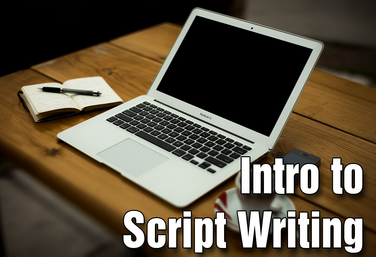
UNIT
Part of the Middle School Curriculum
Unit Five: Intro to Script Writing
by Lindsay Johnson
In this unit, students learn how to write their own scripts using correct formatting. These scripts will be more detailed than the contentless scenes. Students will learn how to write dialogue that provide information about relationships, conflicting objectives, and setting.
They’ll also learn how to correctly add expression and movement directions into the script itself. The unit will end with a partner script writing assignment which is performed in front of the class.
Read More
about Unit Five: Intro to Script Writing
Read Less
about Unit Five: Intro to Script Writing
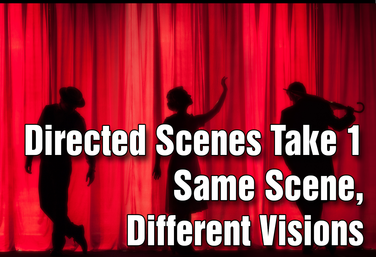
UNIT
Part of the Middle School Curriculum
Unit Six: Directed Scenes Take 1: Same Scene, Different Visions
by Lindsay Johnson
Students will now start applying the skills they’ve learned thus far in the context of existing, fleshed-out scripts.
They will also have opportunities to shift from actor to director and hone such skills as collaboration, self-confidence, and problem-solving which can be used in many other areas of their lives.
Read More
about Unit Six: Directed Scenes Take 1: Same Scene, Different Visions
Read Less
about Unit Six: Directed Scenes Take 1: Same Scene, Different Visions
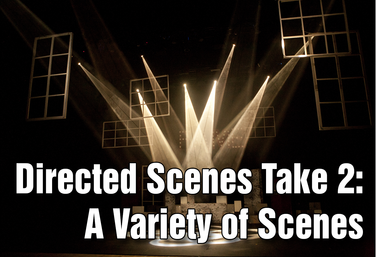
UNIT
Part of the Middle School Curriculum
Unit Seven: Directed Scenes Take 2: A Variety of Scenes
by Lindsay Johnson
Students will have another opportunity to participate in student-directed scenes, only this time each director will be assigned a different script, and actors for each group will be chosen by the teacher based on individual strengths and challenges, rather than holding auditions.
Actors will take a deeper dive into character physicality and use of levels in staging this unit. Directors will continue to create a set design and block the scenes, adding props as well in this unit.
The unit culminates in actors presenting their directed scenes to the class.
Read More
about Unit Seven: Directed Scenes Take 2: A Variety of Scenes
Read Less
about Unit Seven: Directed Scenes Take 2: A Variety of Scenes
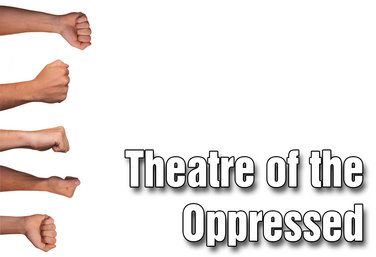
UNIT
Part of the Middle School Curriculum
Unit Eight: Theatre of the Oppressed
by Lindsay Johnson
Students will have a chance to merge their understanding of scene elements with their improvisation skills in this final unit based on Augusto Boal’s Theatre of the Oppressed. Theatre of the Oppressed is a style of theatre specifically created to highlight the injustices of power and oppression in society and to problem-solve ways to bring about change.
Starting with image theatre techniques to identify issues of power and oppression, students will then use forum theatre to create scenarios of oppression taken from their own lives and improvise realistic solutions.
The unit culminates in a performance in which students participate as both actors in a scene they create themselves and spect-actors in scenes created by their peers.
Read More
about Unit Eight: Theatre of the Oppressed
Read Less
about Unit Eight: Theatre of the Oppressed
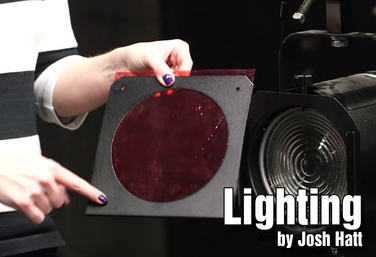
UNIT
Part of the Technical Theatre Mini Units Curriculum
Lighting
by Josh Hatt
This is an introductory mini-unit to lighting that can be achieved whether or not you have a lighting system. Students will work toward being able to demonstrate their knowledge of lighting effectiveness.
The questions of the unit include: How can light affect a scene? How can lighting affect the audience? What is the mood of the scene? How does lighting play a part in creating mood? How can you use shadows onstage? How does color impact the scene?
Read More
about Lighting
Read Less
about Lighting
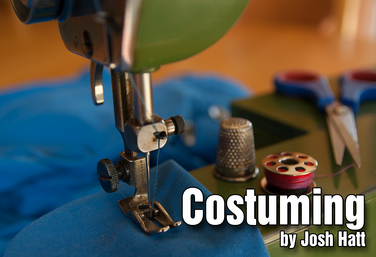
UNIT
Part of the Technical Theatre Mini Units Curriculum
Costuming
by Josh Hatt
If the costumes in a play are going to be effective, we need to be thoughtful about how we use them.
In this mini-unit, students will demonstrate their understanding costume effectiveness and address the following questions: What is the role of costume in the performance? How does color contribute? How does the style of costume affect a performance? How does costume indicate setting? Do you need costumes in a scene?
Read More
about Costuming
Read Less
about Costuming
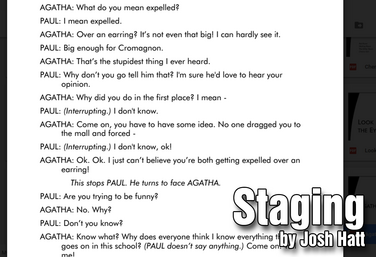
UNIT
Part of the Technical Theatre Mini Units Curriculum
Staging
by Josh Hatt
This is a mini-unit on staging. Along with the driving question for the unit, students will explore about how staging affects the performance. Students will draw a plot design (ground plan) to emphasize the need to plan where scenic elements will be placed. They will also practice taking cues from the script, in order to create staging.
Read More
about Staging
Read Less
about Staging
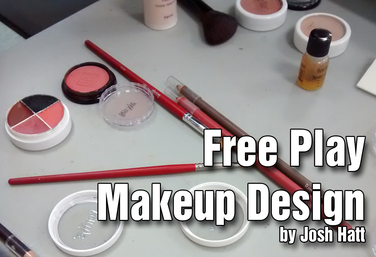
UNIT
Part of the Technical Theatre Mini Units Curriculum
Free Play Makeup
by Josh Hatt
This is a student centred mini-unit on makeup design. Makeup is useful in transporting an audience to a different world.
The purpose is for students to understand that makeup is a tool that theatre technicians can use in order to contribute to effective performance aesthetics; to understand basic makeup rules and care instruction; to understand how to complete a makeup design plot; to look at a project and figure out for themselves what they need to succeed.
Read More
about Free Play Makeup
Read Less
about Free Play Makeup
View all Standards for North Carolina Essential Standards 2024 Standards Master List